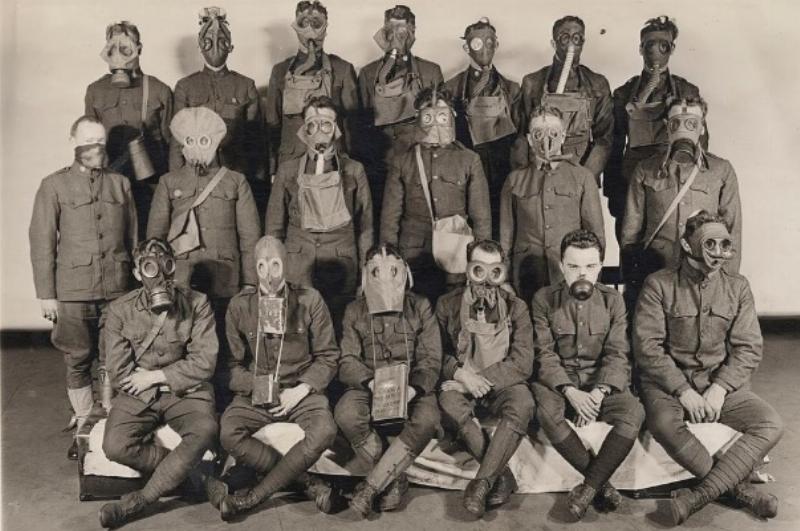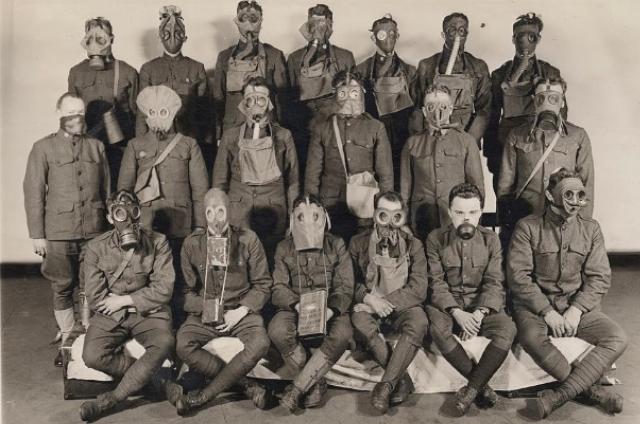


We often credit Wilfred Owen, a WWI British Army officer killed in France on November 4, 1918, as the greatest war poet in the English language, rivaled only by Americans Walt Whitman and Randall Jerrell. Owen’s most famous poem “Dulce Et Decorum Est” (“It is sweet and fitting”), includes in the last the complete quotation from the Roman poet Horace’s Ode: “Dulce et decorum est/Pro patria mori” (It is sweet and fitting to die for one’s country.”
Horace lived within a warrior regime and ethos, where battle was the ultimate test of defining “what is a man” and what is glory. Not exactly, for Owen, whose judgment was that “Dulce Et Decorum Est...” is “The Old Lie...”

American soldiers in 1919 modeled the various gas masks from WWI. Public domain.
The body of Owen’s poem is brutally unvarnished, devoid of any scent of romanticism, for it describes the abject horror of a barbaric death by mustard gas:
If in some smothering dreams you too could pace
Behind the wagon that we flung him in,
And watch the white eyes writhing in his face,
His hanging face, like a devil’s sick of sin;
If you could hear, at every jolt, the blood
Come gargling from the froth-corrupted lungs…
My grandfather, a WWI corporal with the US Army Expeditionary 2nd Engineers, fought at both Chateau-Thierry and Belleau Wood. Memories of his comrades impaled by barbed wire, mowed down by relentless machine gun fire, and subject to endless artillery bombardments were grisly enough. Added to this was his witnessing waves of deaths from mustard/chlorine gas, verifying Wilfred Owen’s account of desperately fumbling for a gas mask, and being unable to rescue those who couldn’t find their mask or were shot while fitting it.
My grandfather’s recollection of being given two tickets to the theatre in Paris by a Belgian general would be a fleeting respite.
The nightmares from vivid scenes of hell unbound, and deep depression from survivor’s guilt haunted my grandfather for 56 years, when a shotgun blast by his own hand, under his chin in 1974, finally granted him peace.
On Memorial Day, and every day, “it is sweet and fitting” to remember not only those who died in battle, but also those whose worst days of unimaginable battle agony never ended—some for over half a century. And for others, it still endures without relief.
Agnus Dei, qui tollis peccata mundi, dona nobis pacem
Lamb of God, who takes away the sins of the world, grant us peace.
